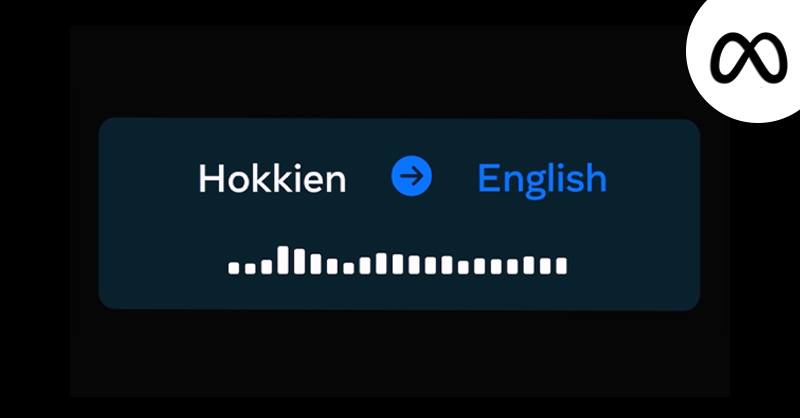In an effort to break down language barriers, Meta has created a new AI translator that can translate spoken languages like Hokkien into spoken English. Building translation tools for Hokkien, a dialect of southern Min Chinese, is extremely difficult because it is mostly spoken and has no established writing system.

The Universal Speech Translator (UST) project of Meta includes the open-source translation system that has achieved success in this endeavour. This, along with other AI techniques in development, are what the business, once known as Facebook, believes will eventually enable real-time speech-to-speech translation across hundreds of languages, including spoken languages.
Languages like Hokkien are challenging to translate because they lack a common writing system and machine translation technologies need a huge amount of written text to train on. In order to solve this issue, Meta used Mandarin as a bridge between English and Hokkien. Mandarin is a different Chinese language, but it has a large amount of publicly accessible training data.
To confirm the precision of the AI translation models, project researchers actively collaborated with native Hokkien speakers. Naturally, Meta built the translation system largely on speech-to-speech translation as a speech-to-text system was not yet available.
Although the model is still under development, it does enable communication between speakers of Hokkien and English. The sole drawback is that, in its present condition, it can only translate one complete sentence at a time.
By releasing tools like SpeechMatrix to help other developers build on its work or create their own speech-to-speech translation systems, Meta is enticing additional programmers to join the bandwagon. The business has also released the research papers and its Hokkien translation models under the open-source licence.











